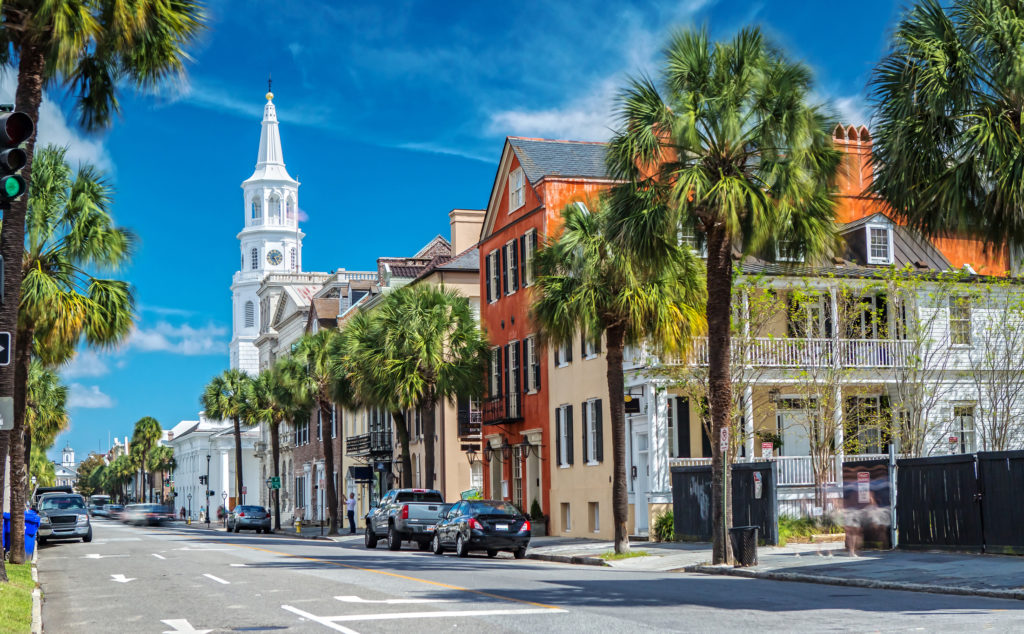A Historical Look 
On April 1, l955, O. Frank Thornton, Secretary of State, declared the “South Carolina Psychological Association to be body politic and corporate, with all rights, powers, privileges and immunities.” The purpose of the organization was “to advance psychology as a science, as a profession, and as a means of promoting human welfare.” The names attached to the Certificate of Incorporation are M. Kershaw Walsh, President; Virgil Ward, President-Elect; George Soloyanis, Secretary-Treasurer; Martha Westrope, Executive Committee; and Carl Bramlette, Jr., Executive Committee.
Since its incorporation, SCPA has sustained an active role in many areas, taking proactive stances on new issues and seeking creative resolutions to old issues, while continuing efforts to maintain psychology as a responsible and essential profession.
In the Organizational Timeline, the “Historical Bits,” and the lists of presidents and award winners which have been developed, the Fiftieth Anniversary Celebration Task Force attempted to highlight the struggles, the issues, and the continuity which give evidence of an ever evolving organization.
The limited records available from the 50’s and 60’s suggest that meetings of the organization were primarily social, with business conducted during the cocktail hour. Minutes in an early FEEDBACK indicate that “because of lack of a quorum, no business was transacted,” an entry that appears several times. However, our organizational timeline gives evidence of major professional achievements throughout our history, even during those “social” years: a statutory licensing law regulating practice (1968), a confidentiality bill (1989), first Academic Day (1990), mandatory continuing education legislation (1990), a bill providing insurance reimbursement for psychologists (1994), to name a few.
The forces of professional evolution remain visibly evident in the many activities of the South Carolina Psychological Association. We should have no doubts about the present status of SCPA and, indeed, the future of psychology in South Carolina.
We hope that this Fiftieth Anniversary Publication will serve as a concise record of SCPA’s first fifty years.
Historical Bits
Before the South Carolina Psychological Association (SCPA) was incorporated, there were few formal organizations for psychologists in South Carolina. Nationally, there was the American Psychological Association (APA), and our handful of members occasionally attended those meetings. Most schools and organizations, however, had no travel budgets, and salaries for faculty were among the lowest in the country, limiting contacts with psychologists elsewhere in the country.
Some state psychologists were members of the Southern Society for Philosophy and Psychology, though the group was small and very academic (and Philosophic). The Southeastern Psychological Association was formed in 1954 and drew leadership and membership from the major southern universities. In South Carolina, few colleges had separate departments of psychology or more than one or two psychologists. The University of South Carolina had six psychologists who were APA members in 1963, though they were split evenly between education and psychology. Institutions and mental health facilities were fortunate to have even one person identified as a psychologist and rarely one with a doctoral degree.
At the time of the forming of SCPA in 1955, even APA’s membership had only slightly more persons with doctoral degrees than members holding masters degrees. South Carolina’s APA membership was a bit behind other states with slightly more masters persons than those with doctorates. Today, full APA membership nationally is held by a very few older psychologists with terminal masters (on the order of about 25 to 1). This is also true of the membership of SCPA.
Certification of Psychologists: A Brief Moment in Our History
Because of the violent opposition to licensure for psychologists by psychiatrists in the state, a decision was reached to engage in self-certification in the early 1960’s. Few members thought that the Commitment To Mental Health, the 1965 report of the Governor’s Advisory Group on Mental Health Planning, which strongly endorsed that the General Assembly create legislation for the licensure of psychologists would be strong enough to offset the blocking efforts. Because of the actions of our small but active and vocal membership and the support of Legislators, especially Earle Morris, and with the endorsement of Governor Donald Russell, licensure became law. This was over the lobbying of psychiatrists such as James Galloway and William S. Hall, who described psychologists to the Legislature as “pinko’s” and unworthy of professional recognition. The counter arguments by state psychologists prevailed. Certification was set aside. The certification committee, consisting of Erland Nelson, Martha Westrope, Hazel Sigler and Harley Scott, played brief but very significant roles in our emerging profession in South Carolina.